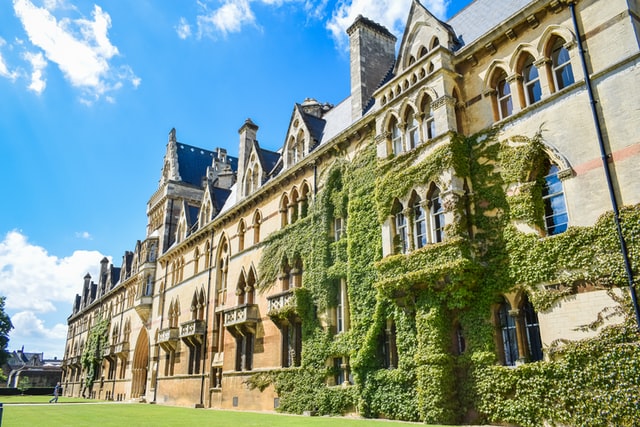
As a landlord of student accommodation, one thing likely to be on your mind is fire safety and the potential risk of a fire outbreak. Students are unlikely to consider fire safety, which is why student accommodation is always at a much higher risk of fire.
According to Firemark, the risks of experiencing a fire are seven times higher for people who live in rented or shared accommodation, such as student accommodation. Most of these occur through the misuse of cooking appliances and careless handling of hot substances.
While it’s extremely unlikely for a fire to break out, you will want to take all the essential security precautions to prevent it, where possible. In this ultimate guide, we take a look at how to ensure fire safety in student accommodation and what you can do to prevent the risks.
Landlord Responsibilities
As a landlord, you will have a great level of responsibility to carry out fire risk assessments, identifying potential fire hazards and ensuring complete fire safety. A fire risk assessment can highlight what can be done to remove or reduce potential risks.
Landlords of student accommodation also have the responsibility to:
- Comply with all necessary regulations
- Install fire alarms (at least one on every floor of the building)
- Test alarms
- Have all appliances (TVs, microwaves, fridge freezers, etc) PAT tested
- Ensure certified fire doors are fitted where required
- Supply all parties involved with an Electrical Installation Condition Report (EICR)
- Carry out repairs within 28 days of being discovered
- Provide local authorities and tenants with a detailed report of completed repairs
- Ensure a fire safety plan is completed so that tenants are aware of what to do in the event of a fire
- Ensure any furniture and furnishings meet the fire resistance regulations
Fire Safety Equipment in Student Properties
Ensuring fire safety equipment is available in your student accommodation is also crucial in order to keep both the property and the tenants safe.
As standard, you should have smoke/carbon monoxide detectors, fire doors, fire extinguishers, fire blankets and interlinking fire alarms. You can also install a stove guard which detects dangerously high temperatures and cuts off electricity to the cooker in order to prevent a potential fire outbreak. It’s also crucial to have these essential pieces of equipment checked regularly to ensure they remain fully operational. We can help in this regard with our thorough, competitively priced fire extinguisher testing service – call now to get started!
Minimising Risks of Fires for Student Tenants
While as a landlord, you can do your part in supplying and fitting fire safety equipment, your tenants will have their own duty of care.
We recommend providing your tenants with fire safety advice to ensure they can also do their part to prevent and reduce any risks. We have listed some of this advice below:
Kitchen Safety
As more than half of all fires begin in the kitchen, it’s vital that all appropriate care is taken to minimise the risk when cooking, for example, by using an extraction fan where necessary and switching off the oven after use.
The most common sources of kitchen fire include the buildup of fat and oil around the hob, leaving food cooking unattended, accidentally leaving equipment switched on, and an excessive cooking temperature. We have also seen some outbreaks caused by leaving metal in the microwave or running a microwave with no items inside.
Turn Off Electrical Items
As a general rule of thumb, You should turn off any electrical appliances that you aren’t using, particularly when you go to sleep or leave, even for a few hours.
One of the most common causes of electrical fires is leaving electrical hair products (i.e., hair straighteners or heated curlers) switched on. During Christmas. you’ll want to make sure that you’ve turned off any decorative lights. Another common cause is using counterfeit electrical items that are not safe for UK use.
Overloading sockets can be another cause, as well as overloading extension leads which will have a safe limit. We also advise checking all electrical cables for damage and to not use them if the cable is frayed.
Check and Test
While smoke alarms and detectors are supplied by the landlord, it’s crucial that these are tested on a regular basis and that the smoke alarms never have the batteries removed or are covered up.
According to the UK Home Office, you are eight times more likely to die in a fire if your smoke alarms are not functioning fully. In addition to having your smoke alarms and detectors checked and tested, the same goes for the electrical items in the property. At UKSM, we carry out PAT testing and fixed wire testing (EICR), helping to minimise cases of electrocution or fire outbreaks.
Be Sensible
It goes without saying that being sensible can prevent a vast number of issues relating to property fires. Taking due care and adopting common sense is the number one way to prevent fires.
For example, blowing out candles, keeping flammable items away from candles and incense sticks, avoiding smoking inside the accommodation, keeping emergency fire doors free and clear of obstacles to list just a few.
Minimise Fire Risks in Your Student Accommodation
Looking to find out more about the health and safety regulations for student accommodation? We’d love to help you out regarding fire safety compliance.
We also recommend reading our guide to fixed wire testing for student accommodation, which explains everything you need to know about fixed wire testing and how this helps maintain fire safety.
If you are a landlord and have any questions about your student accommodation and housing, get in touch with us. You can also read about similar safety issues and topics on our blog, for more information.

